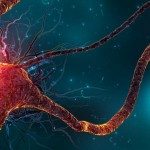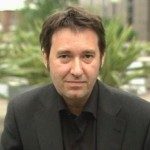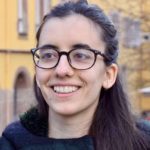Title of the project: Genetics of brain diversity in autism
The laboratory: Human Genetics and Cognitive Functions Unit (Dir. Thomas Bourgeron)
Duration of the contract: 2 years
The aim of the laboratory
Our laboratory is part of the Neuroscience Department of the Institut Pasteur and gathers psychiatrists, neuroscientists and geneticists to understand the causes of autism. We previously identified the first mutations in the NLGN-NRXN-SHANK pathway, which has a key role in synapse formation within the brain. Our results highlight the genetic heterogeneity of autism, but also point at common biological mechanisms that could constitute relevant targets for new treatments. We are leading the genetic work package of AIMS-2-TRIALS, the largest European project on autism research. The project is focused on deep-phenotyping of individuals with autism and controls including brain imaging (EEG and MRI) and a battery of cognitive tests. Our group is currently developing new methods for analyzing whole genome and brain imaging data as well as new paradigms for characterizing mouse social and vocal behaviors.
The role of the Postdoctoral fellow
She/he will analyze genetic data from different groups of individuals with autism or neurodevelopmental disorders (NDD) and controls from the general population (UK Biobank, …). She/he will analyse the data with a focus on the interplay between the common and the rare variants, and how such interplay impacts brain development (eg. gene expression) and leads to different types of autism.
Send your CV along with a motivation letter to chloe.lehoucq@pasteur.fr, with benjamin.devauchelle@pasteur.fr in Cc.
The candidate should have a PhD in Human Genetics and the following skills:
- Strong interest in the field of genetics, neurobiology and psychiatry.
- Computer skills: strong level in the main bioinformatics software and methods (R, Python, Bash).
- Knowledge on large-scale genotyping/sequencing data analyses.
- Good level in statistics.
- Good level of written and oral English.
- Ease in a multidisciplinary environment, taste for teamwork, interpersonal skills.
- Scientific curiosity, methodological rigor.
Because the project will investigate both genetic variations and brain regions to better stratify autism, a knowledge on brain imaging is appreciated.
Examples of papers from the laboratory
- Rolland T. et al. Phenotypic effects of genetic variants associated with autism. Nature Medicine 2023 ePub doi: 10.1038/s41591-023-02408-2.
- Warrier V. et al. Genetic correlates of phenotypic heterogeneity in autism. Nature Genetics 2022 Sep;54(9):1293-1304.
- Leblond C.S. et al. Operative list of genes associated with autism and neurodevelopmental disorders based on database review. Mol. Cell. Neurosci. 2021 Jun;113:103623.
- Leblond C.S. et al. Both rare and common genetic variants contribute to autism in the Faroe Islands. NPJ Genomics Medicine. 2019 Jan 21;4:1.
- de Chaumont F. et al. Live Mouse Tracker : real-time behavior analysis of groups of mice. Nature Biomedical Engineering 2019 3(11):930-942.
- Huguet G. et al. Measuring and predicting the effect of copy number variants on general intelligence in community-based samples. JAMA Psychiatry 2018 75(5):447-457.
- Mercati O. et al. CNTN6 mutations are risk factors for abnormal auditory sensory perception in autism spectrum disorders. Molecular Psychiatry 2017 22(4):625-633.
- Bourgeron T. From the genetic architecture to synaptic plasticity in autism spectrum disorders. Nature Reviews Neuroscience (2015) 16, 551–563.




